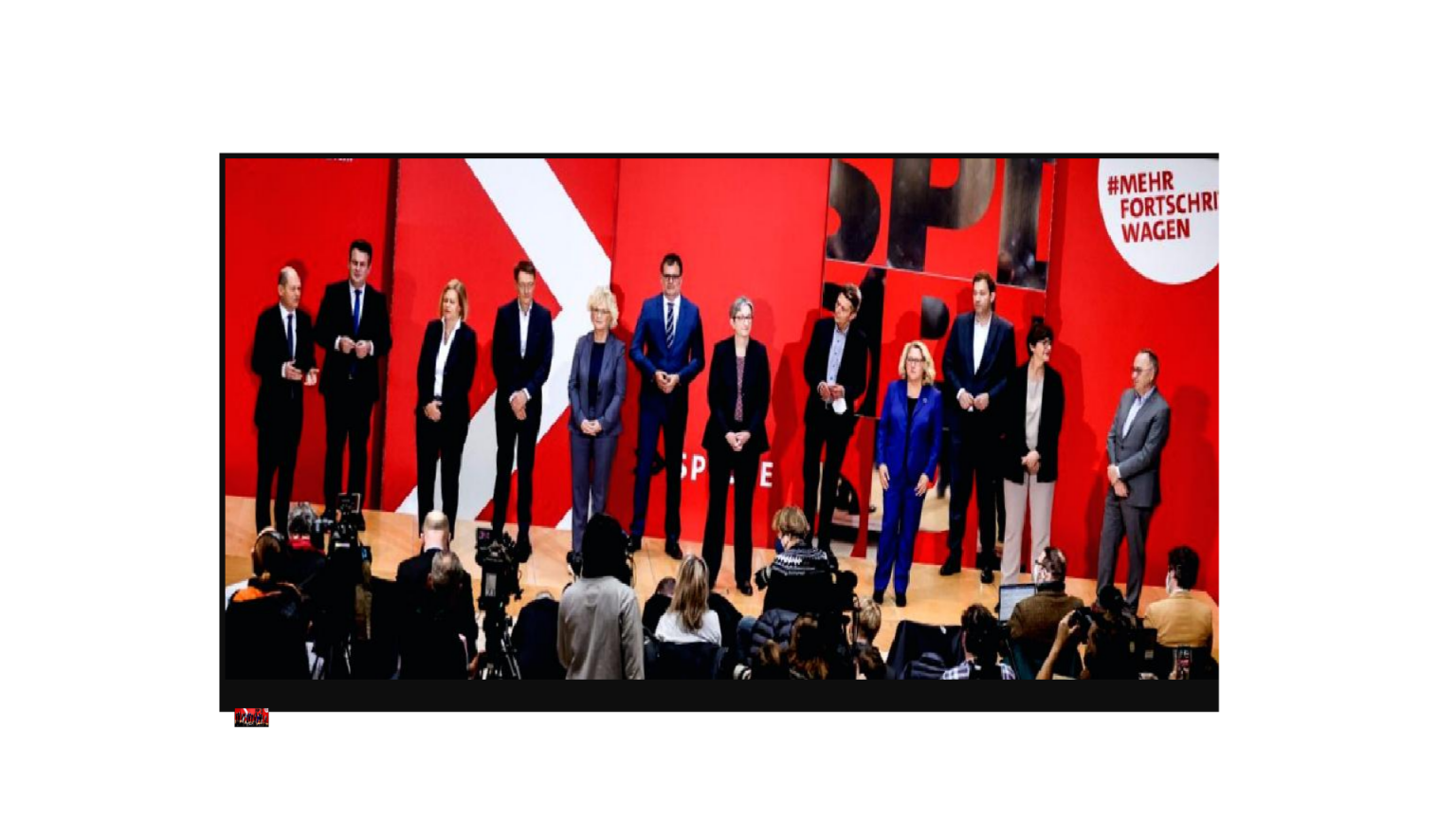“Angela Merkel is delegating the chancellorship to a guy. However, at a landmark event for the country, women would be in charge of all security and diplomacy departments in the next government.”
In Berlin, Germany will be led by a male for the first time in 16 years. Even though Angela Merkel is turning over the chancellery to a man, the upcoming cabinet will include more women than ever before. To be precise, half.
The next chancellor, Olaf Scholz, honoured his election pledge to select as many women as males to his ministry, and not only that, but women would manage all security and diplomatic portfolios.
Germany will get the country’s first female foreign minister and interior minister. In addition, it will have its third female defence minister in succession.
Mr Scholz stated on Monday, “Security will be in the hands of strong women in our government.” Mr Scholz, a Social Democrat, will lead a coalition of three parties, including the progressive Greens and the libertarian Free Democrats.
“Because women and men make up half of the population, women should have half the authority,” he continued. “I’m quite happy that we were able to do this.”
The fact that it is Ms Merkel’s male successor who is achieving gender parity in the cabinet, something she never did herself, speaks to Ms Merkel’s extremely mixed legacy on gender for Ms Merkel. The latter was the most powerful woman in the world for more than a decade.
Ms Merkel, a conservative, has always avoided the term “feminist.” Until her later years in power, she rarely publicly addressed the topic of women’s advancement, and women have not made much progress. In Germany, female business executives are
famously scarce. Even in politics, where Ms Merkel has served as a role model for many, the number of female ministers and MPs appointed under her watch remained about a third.
Nonetheless, many people attribute Ms Merkel’s long and famous rule that Mr Scholz and his staff felt forced to support gender equality.
“Germany has developed in the last several years, and Ms. Merkel has played a significant role in that,” said Jutta Allmendinger, president of the research institution WZB Berlin Social Science Center and a gender and inequality expert. “In a sense, Scholz answered the call of the country.”
“Merkel always performed her gender politics behind closed doors,” Ms Allmendinger explained. “She is a true feminist.” The fact that she did not declare it publicly is because she would have likely lost her power.”
The women who will enter office this week have already stated their intention to leave their imprint on respective ministries.
Annalena Baerbock, the new foreign minister who campaigned as the Greens’ chancellor candidate, has been open to adopting a more assertive stance toward strategic adversaries like China and Russia.
Nancy Faeser, the state of Hesse’s new interior minister, promised on Monday to “combat the largest threat now facing our free democracy: far-right extremism.”
And Christine Lambrecht, who would become defence minister, vowed to provide resources to Germany’s chronically under-equipped military and to ensure that deployments on foreign land beyond Afghanistan would have an “exit strategy.”
Unlike Ms Merkel, these ministers appear to have no reservations about expressing their feminism.
“I”m happy to be a part of this government, a cabinet with gender parity, a cause I have advocated for many years,” said Klara Geywitz, the new housing and urban development minister. “It sends a strong message to all women in our country.” by news













